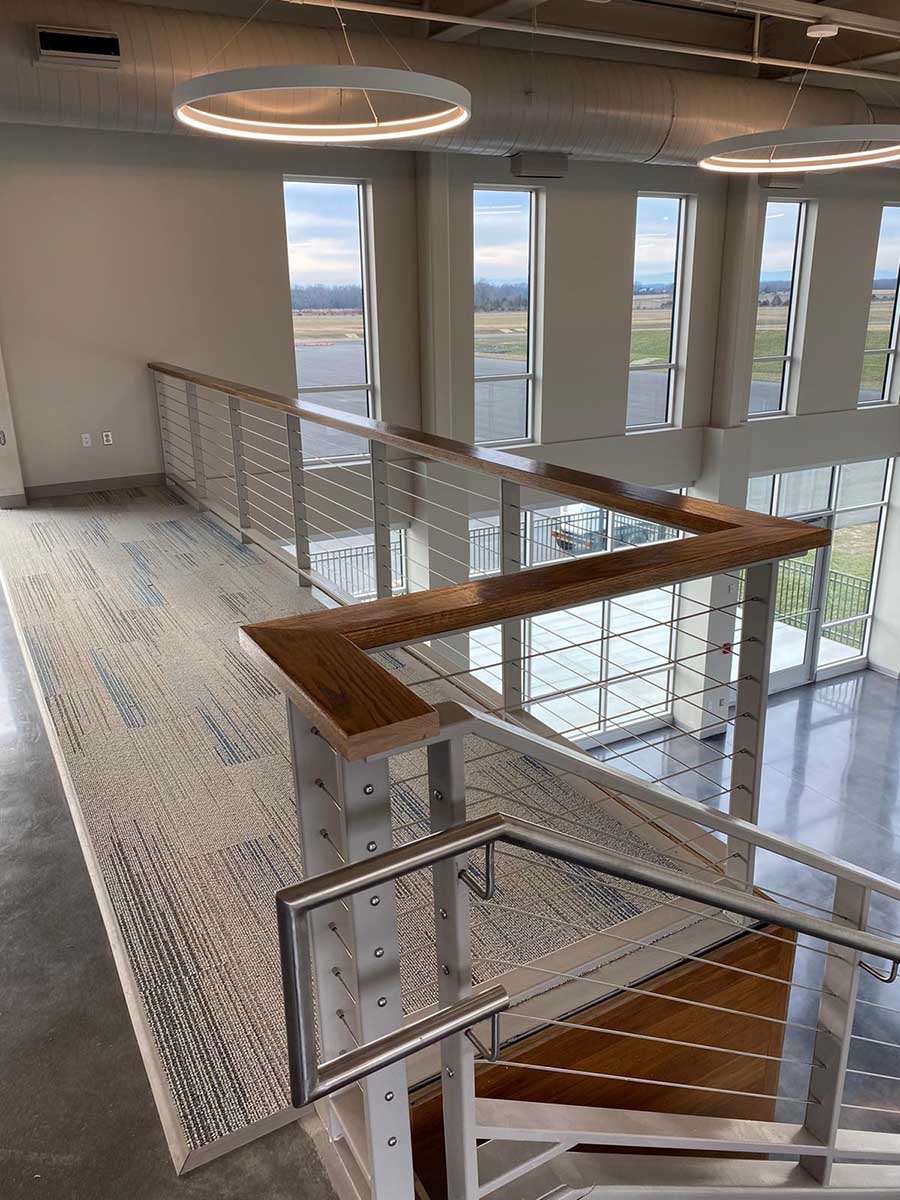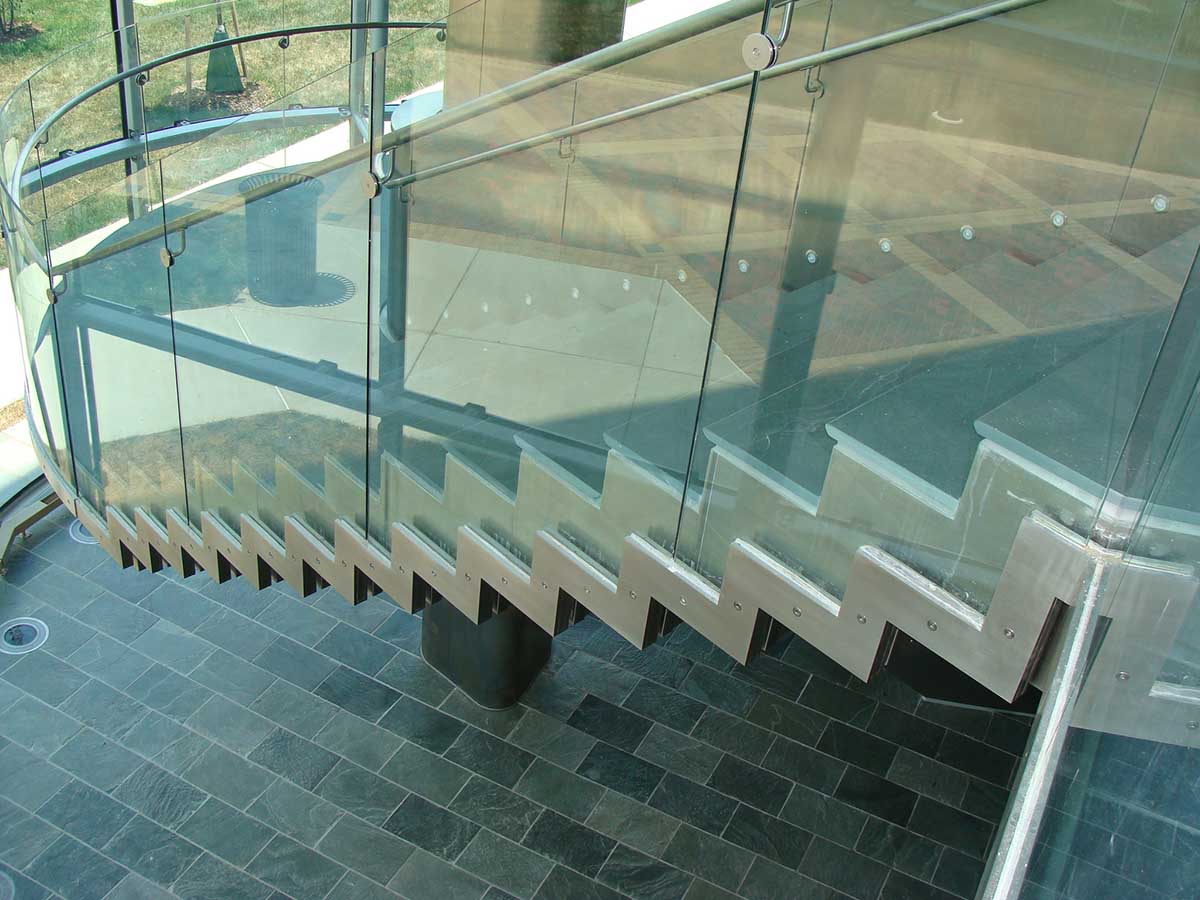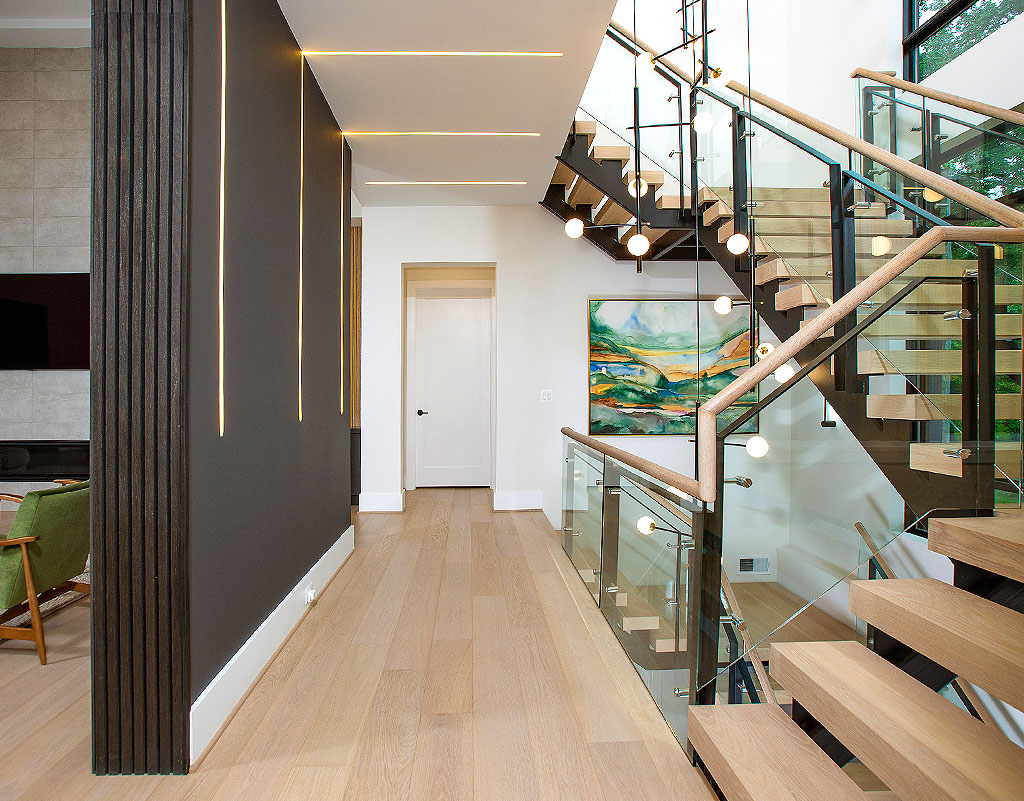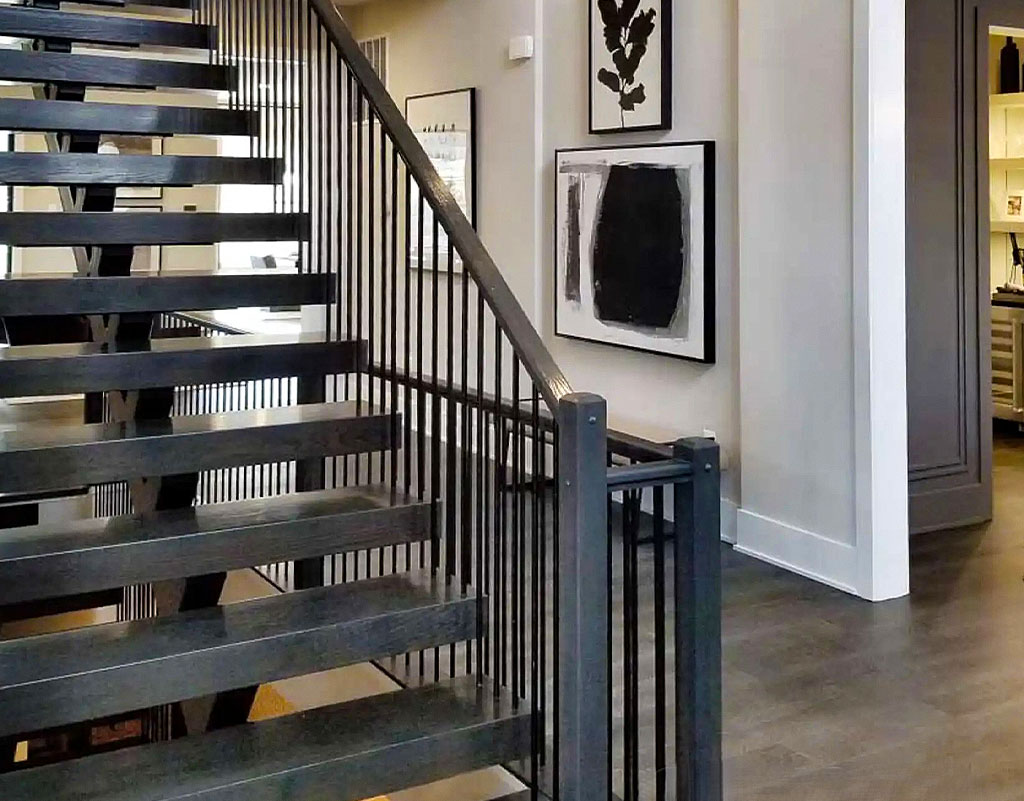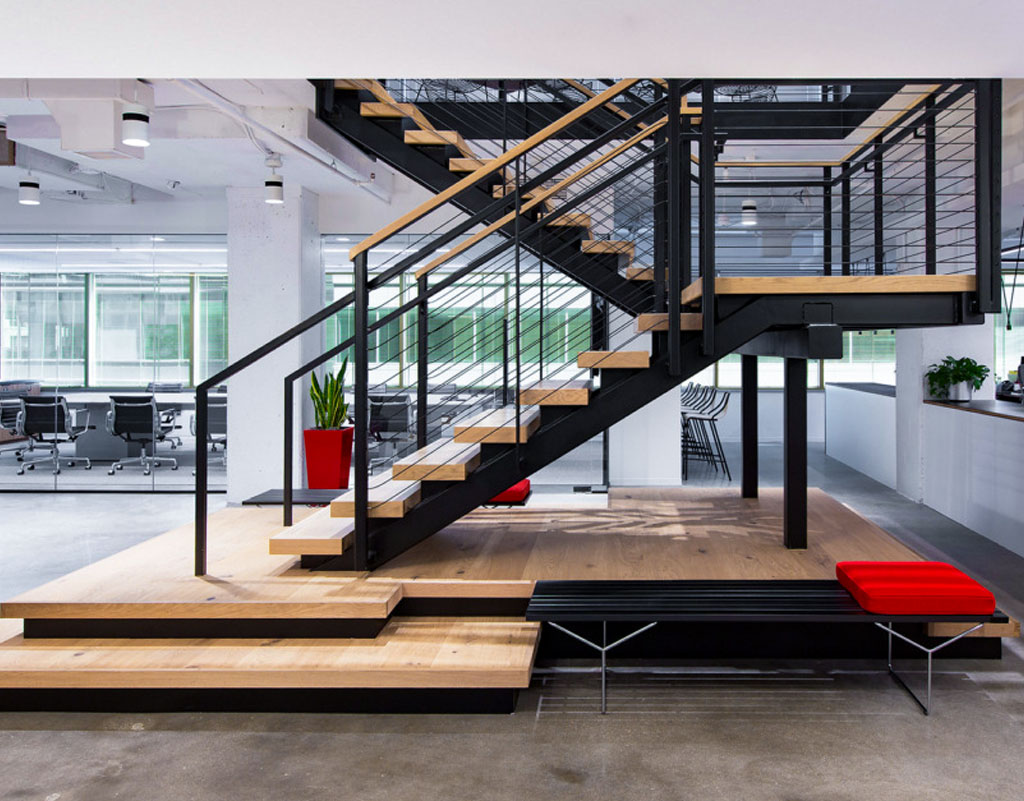By using our website, you agree to the use of cookies as described in our Cookie Policy
Custom Construction Info & Updates
Metal Stairs in Commercial Settings: Designing for Functionality and Style
In the realm of commercial architecture and interior design, the staircase serves not only as a functional element but also as a statement piece that enhances the overall aesthetic appeal of the space. Metal stairs, with their durability, versatility, and modern aesthetic, play a significant role in shaping the atmosphere and functionality of commercial and public settings. In this blog, we'll delve into the role of metal stairs in various commercial environments, exploring design considerations and showcasing how they contribute to both functionality and style.
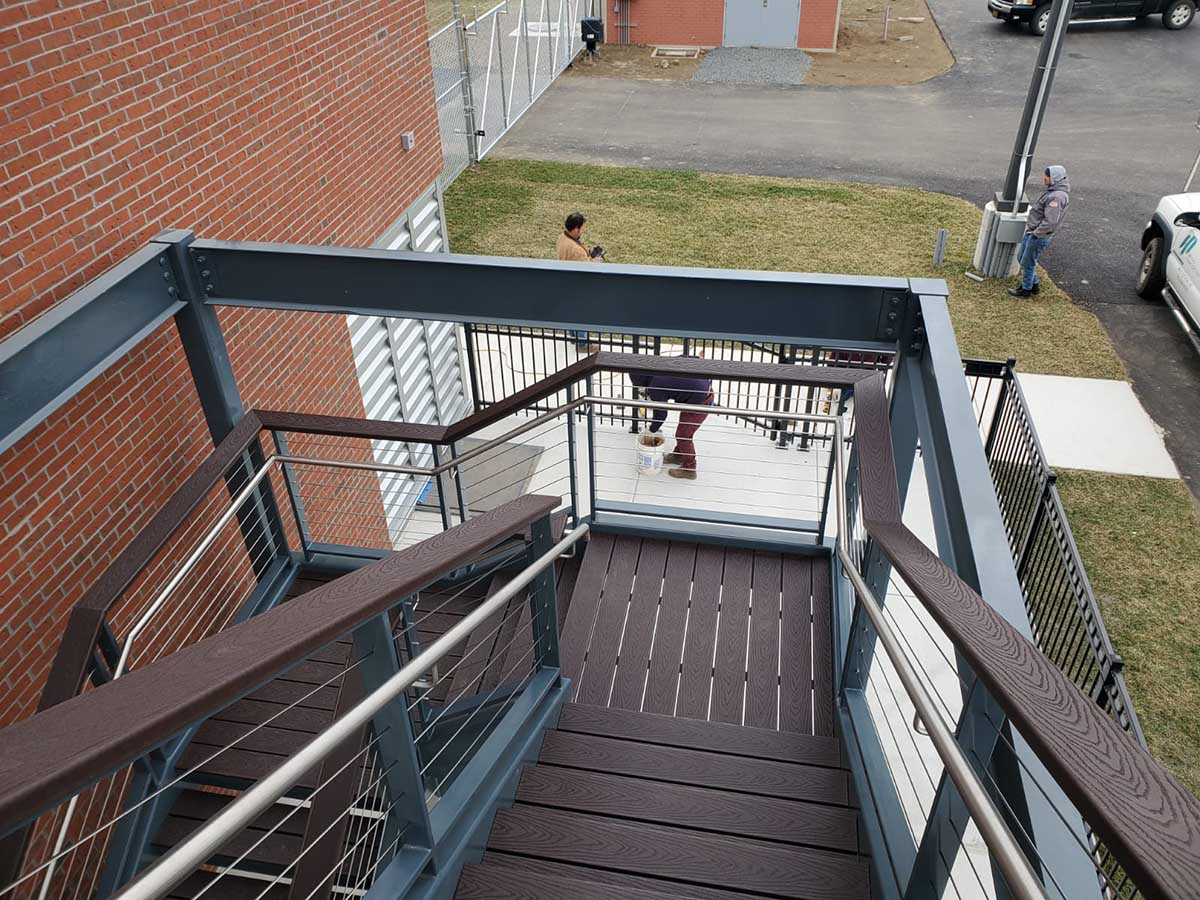
Creating a Lasting Impression:
The staircase often serves as the focal point of commercial spaces, welcoming visitors and setting the tone for their experience. Metal stairs, with their sleek lines and contemporary allure, have the power to make a lasting impression, evoking a sense of sophistication and professionalism. Whether it's a grand staircase in a corporate office lobby or an industrial-inspired staircase in a retail store, metal stairs can captivate attention and create a memorable visual impact.
In commercial settings, durability and safety are paramount considerations when selecting staircase materials. Metal stairs, constructed from materials such as steel or aluminum, offer unparalleled strength and resilience, capable of withstanding heavy foot traffic and frequent use without compromising on safety. Additionally, features like non-slip treads, sturdy handrails, and code-compliant designs ensure that metal stairs meet the highest standards of safety, providing peace of mind for building occupants and visitors.
Versatility in Design:
One of the key advantages of metal stairs in commercial settings is their versatility in design. Metal fabrication techniques allow for endless customization options, enabling designers to create staircases that complement the unique aesthetic and branding of businesses, offices, retail establishments, and hospitality venues. Whether it's a minimalist staircase in a modern office building or an ornate spiral staircase in a boutique hotel, metal stairs can be tailored to suit diverse architectural styles and interior design themes.
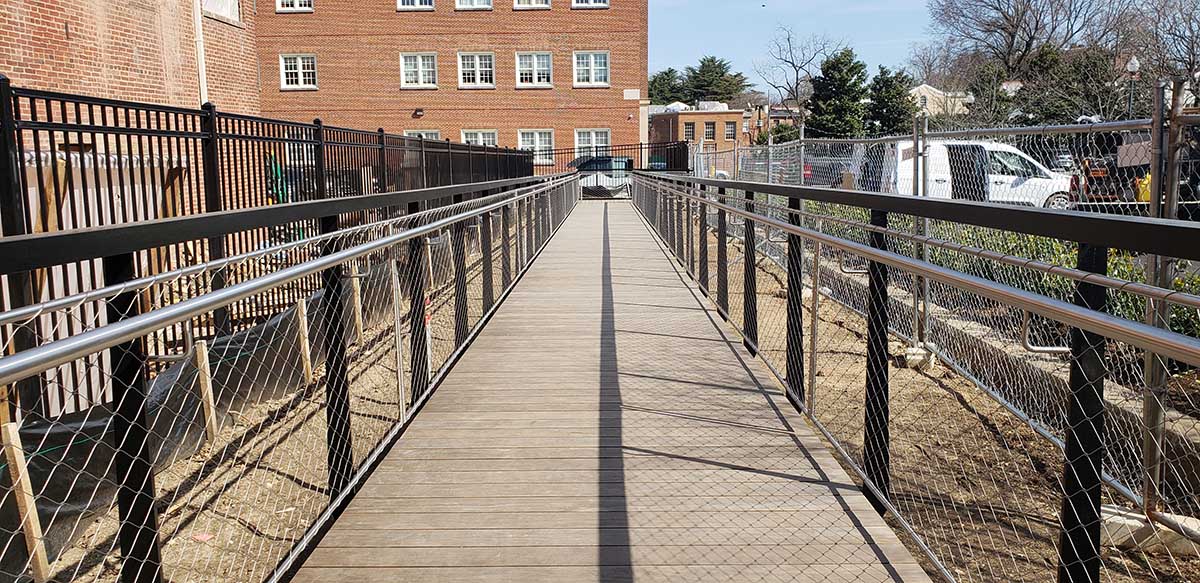
Space Optimization:
In commercial environments where space is at a premium, metal stairs offer practical solutions for optimizing spatial efficiency. Compact designs like spiral staircases or floating steps allow businesses to maximize usable floor space while still providing essential vertical circulation. Additionally, the lightweight nature of metal stairs facilitates easier installation and retrofitting, making them ideal for renovation projects or temporary installations in pop-up shops or event spaces.
Incorporating Brand Identity:
Metal stairs present opportunities for businesses to incorporate their brand identity into the design of their commercial spaces. Whether through custom finishes, corporate colors, or branded signage, metal stairs can become an extension of a company's branding strategy, reinforcing brand recognition and creating a cohesive visual identity throughout the space. By integrating brand elements into the staircase design, businesses can create memorable experiences for customers and reinforce their brand message.
Conclusion:
In conclusion, metal stairs play a crucial role in shaping the functionality and style of commercial settings, from offices and retail establishments to hospitality venues and public spaces. With their durability, safety features, versatility in design, and ability to incorporate brand identity, metal stairs offer practical and aesthetic benefits that enhance the overall user experience. Whether it's making a bold architectural statement or optimizing spatial efficiency, metal stairs are a versatile solution for businesses seeking to elevate their commercial environments with functionality and style.



